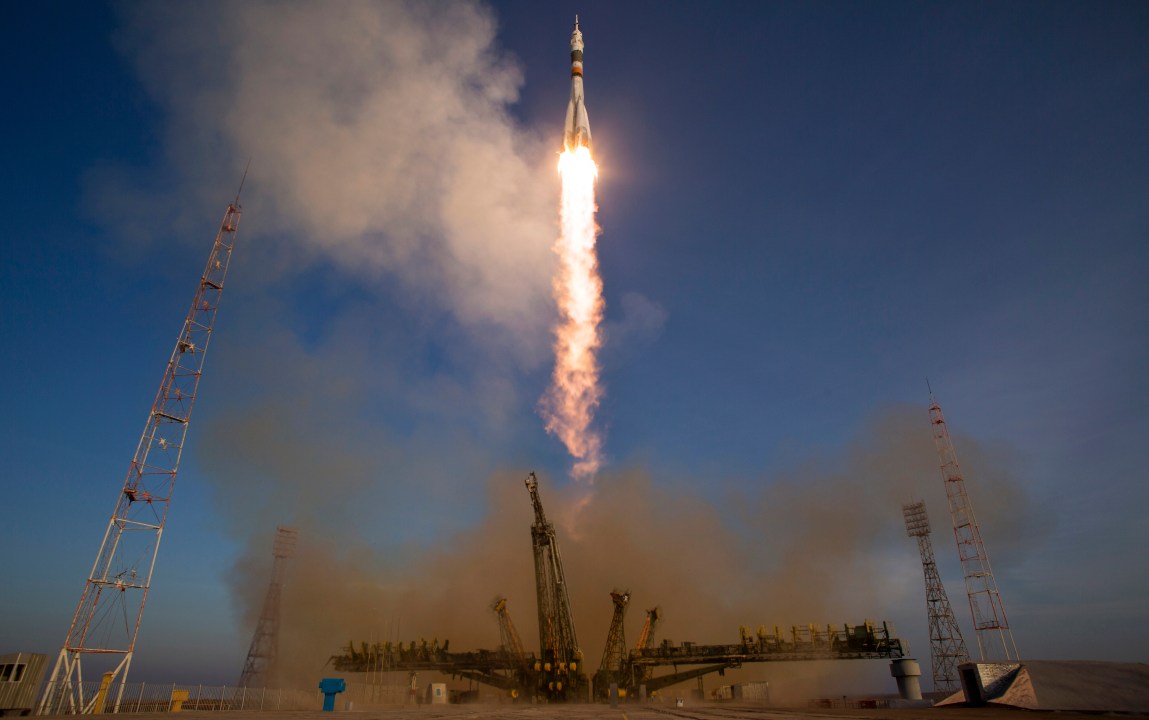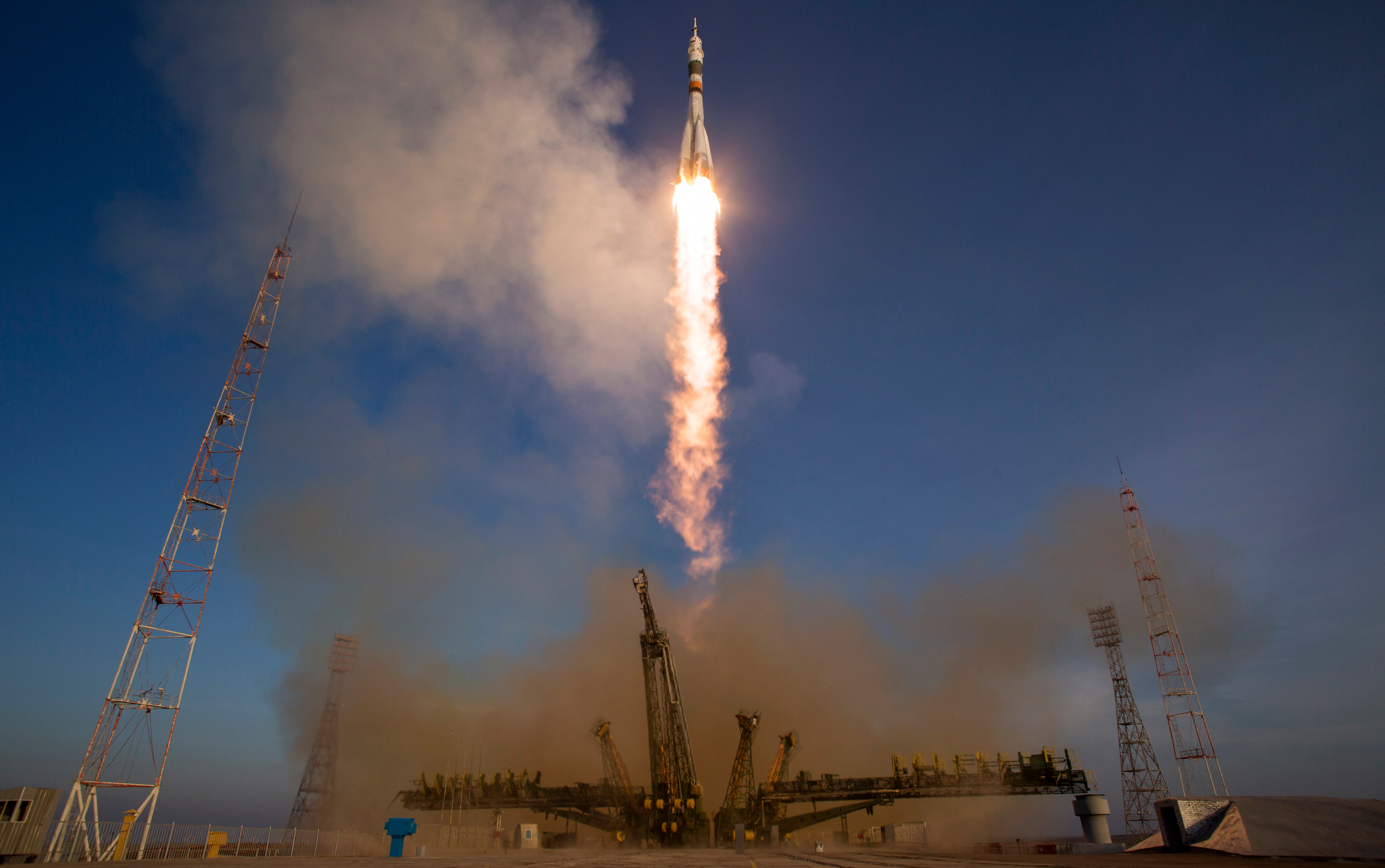Why is it that the sight of a huge, thrusting rocket ploughing through virgin space at 25,000 kmph makes me feel so good? As for seeing a real astronaut with a Union Jack on his arm, how can anyone not be moved? Englishman Tim Peake launched into space just after 11 AM yesterday, alongside Russian Yuri Malenchenko and American Tim Kopra, the three men heading for the International Space Station. Peake is the first official UK astronaut, although the seventh Briton in space, the first being Helen Sharman in 1991. There are many people who consider this all a bit of a waste of money; Rev Giles Fraser, for one, was mulling over the expense involved yesterday morning.
It’s true that space travel is hugely costly, but then it would be when a rocket is consuming 255 tonnes of fuel and liquid oxygen in under five minutes. And while NASA themselves point to the research benefits of the space station, there are deeper spiritual rewards to space travel too. As Brian Cox told journalists at the Science Museum: ‘If just one or two of the school children here decide to be engineers or scientists or test pilots as a result of this mission, then it’s going to be worth it.’
Space has a unique ability to inspire; it’s arguable that the Mercury and Apollo missions of the 1960s led to a big increase in children studying science in the US, as space advocates have at least claimed. But space travel also has a capacity to psychologically unite humanity like nothing else can; we are by our nature tribal animals and so doomed to permanent conflict, whether between nations or religions, ideologies or politics. Where one source of conflict disappears, another takes it place. But space acts as an external focus for humanity’s energy, essential for a species that needs heroic narratives and larger goals. Man cannot live on bread alone.
Elon Musk, the entrepreneur who wishes to go ahead with Mars colonisation, recently warned that World War Three might prevent it ever happening. I would say that a race to conquer Mars would actually reduce the chance of major and minor conflict on earth, and would give young boys something to dream of that didn’t involve chopping people’s heads off.
It’s arguable that the Cold War space race helped to stop that war going hot, even if it only played a minor role. And although the two arch-enemies were in competition, there was also the sense that they were on the same side. Wherever Neil Armstrong, Buzz Aldrin and Michael Collins travelled after Apollo 11 they were treated not as representatives of the United States but of all humanity. It’s well worth watching For All Mankind on this subject – Collins in particular is a very interesting man. Likewise with the Cosmonauts, who were discovering space not just on behalf of a regime most people found despicable, but for all mankind.
That a Russian can go up in a rocket with an American and Englishman when their countries have such poor relations is a sign of how unifying space is. I do hope that some of the kids watching this are inspired to go into science or engineering, and that one day we have a full British space mission – and the sight of a huge, powerful, thrusting rocket with a Union Jack down the side.








Comments